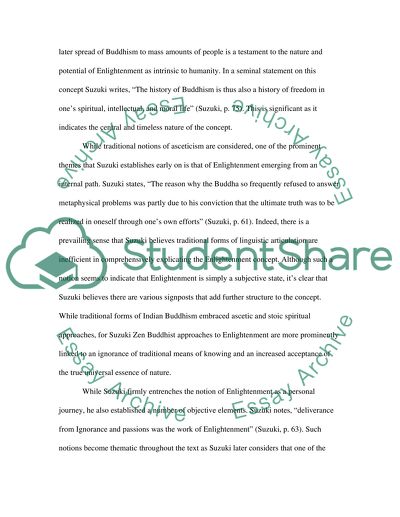Cite this document
(“What do you Think Zen Means by Enlightenment Essay”, n.d.)
Retrieved from https://studentshare.org/philosophy/1442720-japanese-philosophy-what-do-you-think-zen-means-by
Retrieved from https://studentshare.org/philosophy/1442720-japanese-philosophy-what-do-you-think-zen-means-by
(What Do You Think Zen Means by Enlightenment Essay)
https://studentshare.org/philosophy/1442720-japanese-philosophy-what-do-you-think-zen-means-by.
https://studentshare.org/philosophy/1442720-japanese-philosophy-what-do-you-think-zen-means-by.
“What Do You Think Zen Means by Enlightenment Essay”, n.d. https://studentshare.org/philosophy/1442720-japanese-philosophy-what-do-you-think-zen-means-by.


